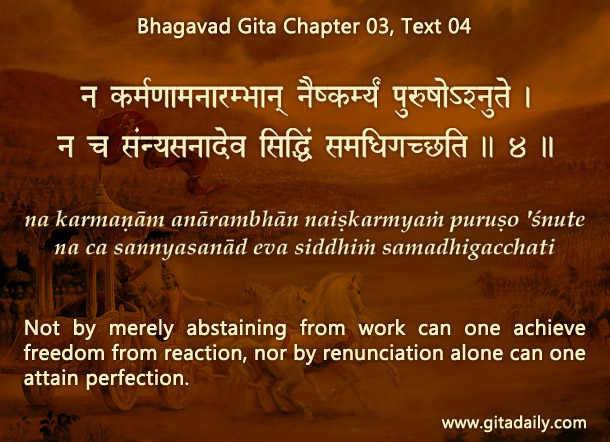Suppose a doctor neglected treating a patient, despite having the necessary capacity. Such negligence would be culpable – in doing nothing, the doctor would be doing a serious wrong.
Similarly, if a martial guardian of society remained inactive while anti-social elements wrecked havoc, that inaction would be culpable negligence. Aptly, the Bhagavad-gita (03.04) cautions that inaction doesn’t exempt one from liability to reaction.
Taking the medicine metaphor further, we normally consider a doctor’s actions benevolent, but they are violent from the perspective of the germs infecting the patient. Yet what is violence for the infectant is benevolence for the infected. Such is the nature of life in material existence, wherein the life of one living being sometimes requires the death of another.
While survival of the fittest is the law of existence for subhuman species, we humans are not meant to govern ourselves by our lower nature that coincides with the nature of subhuman beings. Instead, we are meant to govern ourselves by our higher spiritual nature as souls who delight in loving and being loved. The principles that enable us to realize and actualize this higher nature comprise the essence of dharma. Thus, dharma is not some arbitrary set of religious codes imposed from outside; it is an organic pathway for the progressive expression of our latent spiritual nature that thrives on loving and being loved.
Unfortunately, many spiritually retrograde elements in society choose to live according to their lower nature, seeking paramountcy by victimizing the weak. To curb such anti-social elements, the martial guardians of society need to adopt assertive, even aggressive, measures when necessary. Though some peaceniks may disapprovingly label such corrective action as violence that they feel must be eschewed at all costs, Gita wisdom helps us see such action not as violence, but as benevolence.

Explanation of article:

Leave A Comment